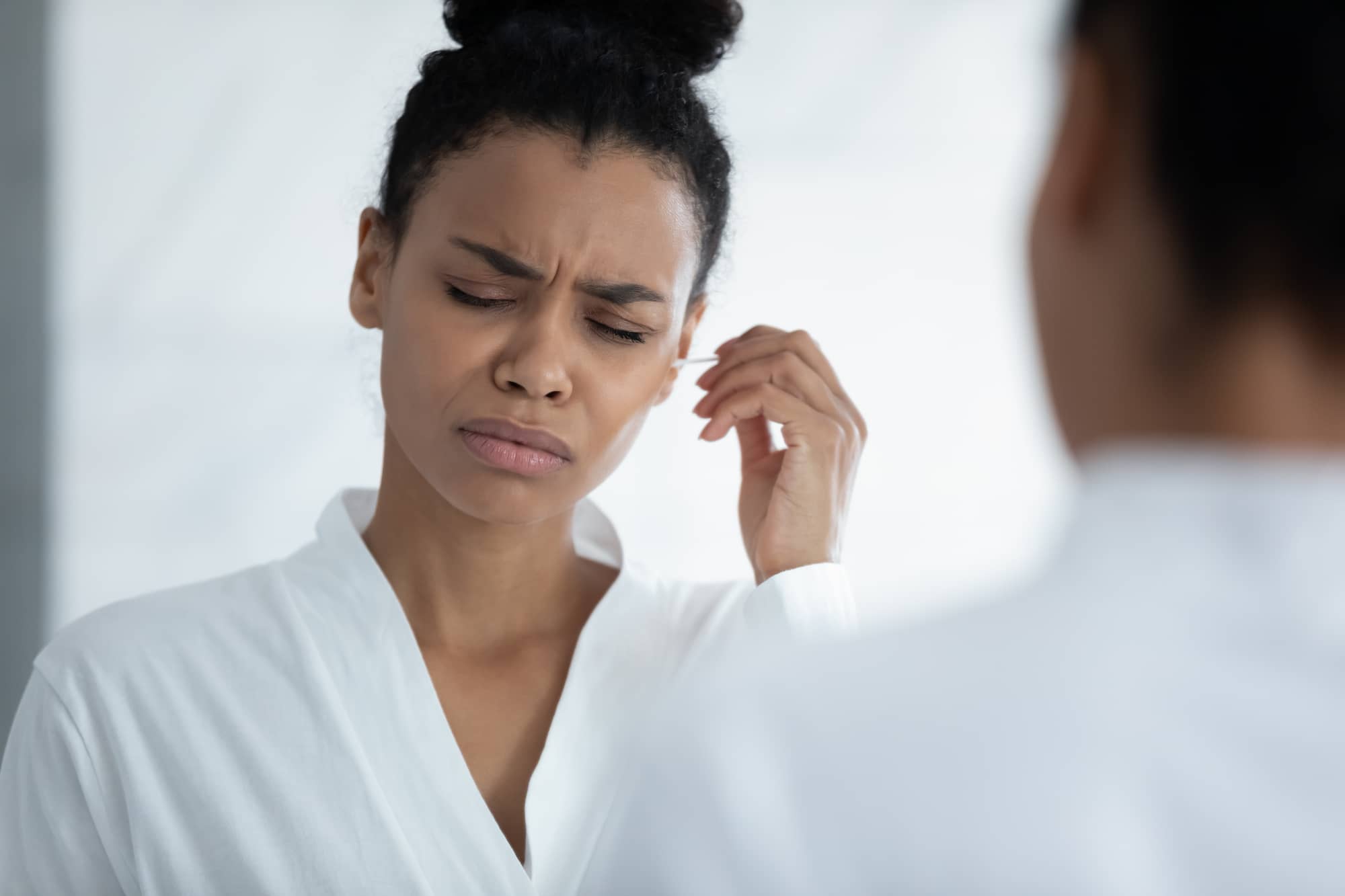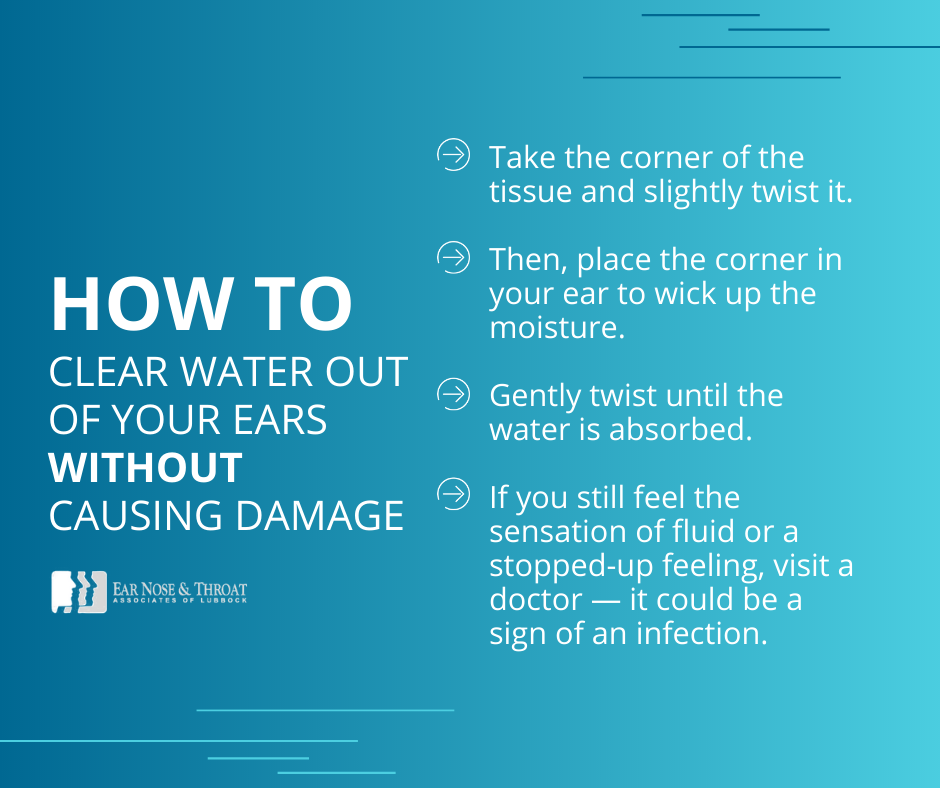Ask a Doctor: How Can You Safely Clean Your Ears in a Post Q-Tip World?

Medical professionals are known for their advice – and most of it doesn’t involve Q-tips. But as an Audiologist, the best and most universal advice I give is this: Do everything you can to protect your hearing.
With many types of hearing loss, there’s no going back once the damage is done. And one of the easiest ways to cause damage to your ears is through casual at-home cleaning.
Perhaps you grew up learning how to clean your ears with cotton swabs, hairpins, or even other small gadgets. But did you realize that each of these items has the potential to scratch the ear canal or cause it to bleed? These little devices can even shove wax further into the ear, occluding it up against the eardrum… potentially perforating the eardrum. Yikes! Who knew a Q-tip could do so much damage?
If Q-tips and other ear cleaning tools are so dangerous, how are you supposed to clean your ears? And how often are you supposed to clean your ears? Is there even a right way to do this yourself?
Here’s what we recommend:
How to Clean Your Ear Without Damaging Your Hearing
Cleaning your ears isn’t as essential as you may think. As a general rule of thumb, don’t put stuff in your ears.
This includes cotton swabs and hairpins.
If you feel like your ears are collecting wax, the safest way to remove buildup is to visit a physician, ENT, or Audiologist. Using microscopes and specifically designed tools, these medical professionals can safely remove the wax without causing damage.
Some doctors use irrigations to help flush out the earwax, but we don’t recommend this unless the eardrum is thoroughly checked first. The eardrum must be intact in order for the solution to be effective. If you happen to have a hole in the eardrum, these irrigations can make patients dizzy and lead to infection.
Perhaps you’ve heard people explain how to clean your ears in the shower. Some shower cleaning methods can also cause damage to the ear, but you can clean safely them immediately after. Using a damp towel, wipe off the entrance of the ear right after bathing. But avoid putting anything past the entrance of the ear canal as it can cause extensive damage to your ear and your hearing.

Should You Use Q-Tips?
While cotton swabs hold a variety of uses from makeup to medicine application, they shouldn’t be used to clean your ears.
In fact, put nothing past the entrance point of your ear. Just clean what you can see of the outer ear. Any time you enter the ear canal, you’re at high risk for damage, making a problem worse, causing infection or occlusion, or perforating the eardrum.
If my eardrum is intact, can I use irrigations at home?
If you have a tube in the ear, your eardrum is not intact. However, other issues lead to perforated eardrums as well. Patients can develop a hole in the eardrum from trauma, ear infections, or previous surgeries. And sometimes, they don’t even know there’s been damage.
We want to keep the ear healthy — and no chemicals or tools need to enter the ear without a doctor’s recommendation.
Putting hard tools in your ear can shove the wax down further. Over-the-counter irrigations can make the wax so soft, flushing the wax back against the eardrum, making it tougher to clean. There are also different types of earwax that respond better to specific solutions. A doctor will be able to determine which solution will work best for your specific buildup and use it in the office if necessary.
How to Get Water Out of Your Ears
After swimming (or even showering), water can sometimes stay in the ear. Rather than turn to chemical treatments or cotton swabs, use a soft facial tissue to remove it.
Take the corner of the tissue and slightly twist it into a point. Then, place the corner in your ear to wick up the moisture. Gently twist until the water is absorbed. If you still feel the sensation of fluid or a stopped-up feeling, visit a doctor — it could be a sign of an infection.
If your ears are bothering you or you suspect extensive wax buildup, visit your Audiologist, ENT, or primary care physician for an ear exam and cleaning. If you try to address the issue on your own, you’ll likely make your symptoms worse. At home, you’re only responsible for keeping your outer ear clean — the rest is up to the doctor.
Dr. Thackrey has been providing Audiology services to West Texas residents since 2006. She is licensed in the State of Texas and is a member of the American Speech-Language-Hearing Association (ASHA). She specializes in hearing evaluations of all ages, but is especially skilled in the selection, fitting, programming and servicing of hearing aids. Learn more about Dr. Thackrey
Categories:







